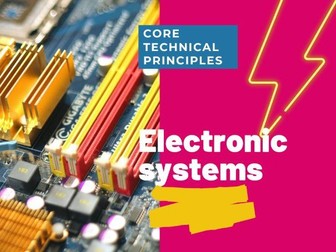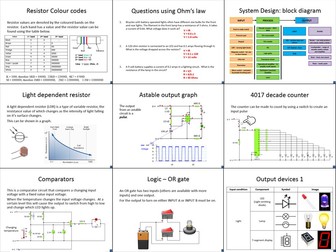Electronic systems: Inputs, Processors and Outputs - PPT GCSE
These resources are offered in addition to the FREE worksheets and access to the video at https://youtu.be/fMFC1SaHeHk.
PPT LOs:
Recall some electrical components, consider how electronics function as a systems, learn about some Input, Process and Output devices and how they’re used in the real world.
Please also see my latest electronic and mechanical project which I designed as a mini project for my year 10 group but could also but suitable as a KS3 rotation:
/teaching-resource/resource-12496313

